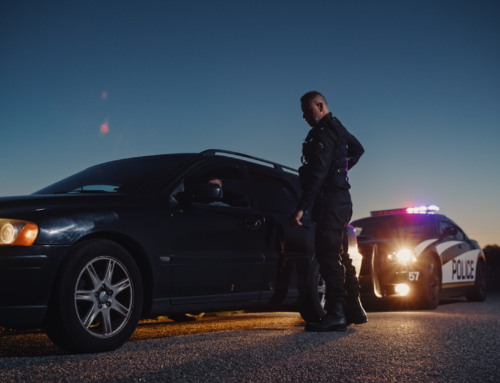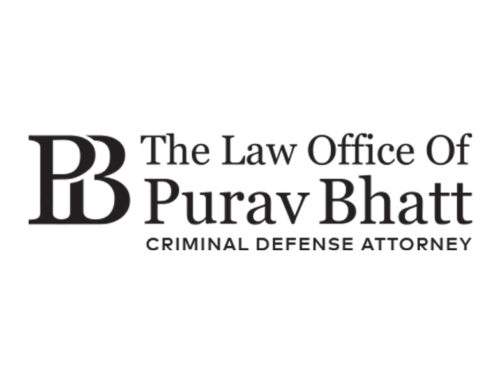Facing DUI charges can be overwhelming under any circumstances, but for military personnel, the stakes are significantly higher. Unlike civilian drivers who face consequences under state law alone, service members confronting DUI allegations must navigate a complex dual-track system that can impact both their civilian legal standing and their military career.
Military DUI cases are governed by the Uniform Code of Military Justice (UCMJ) in addition to civilian statutes, creating a complex web of potential consequences that extends far beyond typical fines and license suspension. Service members may face court-martial proceedings, administrative actions, security clearance revocation, and career-ending disciplinary measures that civilian defendants never encounter.
Understanding the fundamental differences between civilian and military DUI proceedings is crucial for service members and their families. The legal standards, procedural requirements, evidence rules, and potential penalties vary dramatically between civilian courts and military tribunals. Moreover, the timing and coordination between civilian and military proceedings can significantly impact case strategy and outcomes.
This comprehensive analysis examines the critical distinctions between civilian and military DUI cases from a defense attorney’s perspective, providing service members with the knowledge necessary to protect their rights, careers, and futures when facing these serious allegations.
At The Law Office of Purav Bhatt, P.C., you benefit from the combined experience of criminal defense lawyer Purav Bhatt—a former prosecutor with over a decade of defending clients across Chicago, Illinois—and military defense attorney Anthony Villalobos, who works side by side with him on every case. Together, they provide clients with strategic, responsive representation backed by a history of success in criminal defense.
If you are a military member facing DUI charges at a major installation such as Fort Bragg, Fort Hood, or Fort Bliss—or a civilian charged with DUI in Chicago—the risks are too high to face alone. Call The Law Office of Purav Bhatt, P.C. today at 773-791-9682 to take the first step in protecting your rights and your future.
👉Also Read: Charged with Child Pornography in the Military? Guidance from a Fort Bragg Military Defense Attorney
Understanding Civilian DUI Charges
DUI charges in the civilian realm are strictly enforced to discourage drunk driving. In Illinois, for example, a DUI charge can result in jail time, hefty fines, and a suspended license. The social stigma attached to a DUI conviction can also be profound, affecting one’s personal and professional life. Common penalties for a DUI charge include community service, mandatory alcohol education programs, and the installation of an ignition interlock device.
These penalties and legal processes can be daunting without proper legal representation. A Chicago DUI attorney can provide invaluable assistance, ensuring that your rights are protected and helping to mitigate some of the severe consequences of a DUI charge.
Civilian Legal Consequences
Civilian DUI charges in Illinois carry immediate and long-lasting legal consequences:
- A first-time DUI conviction can lead to fines of up to $2,500 and up to one year in jail, depending on the severity of the offense.
- A blood alcohol content of .08 or higher results in an automatic six-month driver’s license suspension.
- These penalties can severely disrupt your daily life, making it difficult to commute and fulfill professional responsibilities.
First-time offenders may have the opportunity for court supervision, which can help them avoid a permanent criminal record. This leniency includes conditions like attending alcohol education programs and complying with regular monitoring. Violating these conditions revokes the leniency, enforcing full penalties.
The timing of these penalties is also critical. In Illinois, a driver’s license suspension begins 46 days after a DUI arrest unless a petition to rescind is filed for a statutory summary suspension. Acting quickly to secure a DUI defense attorney can significantly affect your case outcome.
The Role of a Civilian DUI Attorney
Hiring an experienced criminal defense lawyer can be a game-changer when facing DUI charges. A skilled defense lawyer can:
- Scrutinize every detail of your DUI case for weaknesses in the prosecution’s evidence
- Help petition for license reinstatement
- Negotiate for reduced sentences
- Find grounds for case dismissal
Their experience is crucial in navigating the complexities of DUI laws and ensuring that your rights are upheld. Chicago DUI lawyers can provide valuable assistance in this process.
Preparation is crucial in any legal battle, including DUI cases. Before your court date, gather and organize all documents related to your DUI arrest, including police reports, witness lists, and other relevant evidence. Meticulous preparation can significantly influence your case outcome by allowing your attorney to build a strong defense strategy.
Experience is immensely important in DUI defense. A seasoned DUI lawyer with extensive knowledge can leverage their deep understanding of the law to pursue the best possible outcome for you. Whether it’s negotiating plea deals or challenging the validity of the blood alcohol test, their skill and strategic approach can make a significant difference in your case.
👉Also Read: What to Do If You’re Accused of Sexual Assault in the Armed Forces: Advice from a Military Defense Attorney
Military DUI Charges: An Overview
Military DUI charges operate under fundamentally different legal framework than civilian cases, governed by the Uniform Code of Military Justice (UCMJ) rather than state statutes. This creates a dual-jeopardy scenario where service members may face prosecution in both military and civilian courts for the same offense, multiplying potential consequences exponentially.
Dual Prosecution Reality
Service members charged with DUI confront a complex legal landscape:
- Civilian Court: State DUI charges with standard penalties
- Military Court: UCMJ violations with additional military-specific consequences
- Administrative Actions: Non-judicial punishment and career-impacting decisions
This dual-track system means that even if civilian charges are reduced or dismissed, military consequences may still proceed independently.
Military-Specific Penalties
Non-Judicial Punishment (Article 15):
- Reduction in rank
- Forfeiture of pay (up to half pay for two months)
- Extra duty assignments
- Restriction to base
- Written reprimands affecting promotion eligibility
Administrative Consequences:
- Security clearance suspension or revocation
- Loss of specialized military occupational specialty (MOS)
- Removal from leadership positions
- Bar to reenlistment
- Involuntary separation from service
Court-Martial Penalties:
- Confinement (varies by court-martial type)
- Dismissal (officers) or dishonorable discharge (enlisted)
- Total forfeiture of pay and allowances
- Federal conviction with lifelong implications
Court-Martial Process
The military justice system follows strict procedural requirements distinct from civilian courts:
Initial Stages:
- Pretrial Confinement Review: Within 48 hours of confinement
- Command Review: Within 72 hours to assess the continued confinement necessity
- Article 32 Preliminary Hearing: Military equivalent of grand jury proceedings examining evidence and determining formal charges
Court-Martial Types:
- Summary Court-Martial: Minor offenses, maximum 30 days confinement
- Special Court-Martial: Intermediate offenses, up to one year confinement and bad-conduct discharge
- General Court-Martial: Serious offenses, unlimited punishment including dishonorable discharge
Career and Life Impact
Military DUI convictions create cascading consequences beyond immediate penalties:
Professional Impact:
- Permanent federal criminal record
- Ineligibility for federal employment
- Loss of professional licenses requiring clean records
- Difficulty obtaining civilian employment with background checks
Veterans Benefits:
- Dishonorable discharge eliminates VA benefits eligibility
- Bad-conduct discharge may restrict certain benefits
- Impact on GI Bill eligibility and usage
Security Clearance:
- Automatic review triggering potential revocation
- Disqualification from classified positions
- Loss of clearance eliminates many military career paths
👉Also Read: What Are the Legal Consequences of a Second DUI in Chicago? Insights from a DUI Criminal Defense Lawyer
Command Discretion and Aggravating Factors
Military commanders possess significant discretion in pursuing charges and determining punishment levels. Factors influencing decisions include:
- Service member’s rank and responsibilities
- Prior disciplinary history
- Mission impact and unit reputation
- Circumstances of the offense (on/off duty, on/off base)
- BAC level and cooperation with authorities
The military’s emphasis on good order and discipline means DUI charges are prosecuted aggressively, with commanders often pursuing maximum allowable punishment to maintain unit standards and deter future misconduct.
Understanding these complexities requires dedicated military defense knowledge, as the interplay between civilian and military proceedings, combined with unique UCMJ procedures, creates legal challenges that civilian attorneys typically cannot navigate effectively.
Key Differences Between Civilian and Military DUI
Jurisdictional Authority and Enforcement
Civilian Cases:
- Governed exclusively by state and local statutes
- Limited to civilian law enforcement protocols
- Jurisdiction ends at arrest and prosecution in state court
Military Cases:
- Subject to UCMJ authority regardless of location
- Military police involvement with specialized protocols
- Command jurisdiction extends to off-base incidents
- Dual prosecution potential in both military and civilian systems
Trial Procedures and Standards
Jury Composition: Military courts utilize panels of service members who inherently understand military conduct standards and operational requirements, creating a different dynamic than civilian juries of community peers.
Evidence Standards: Military courts may apply different evidentiary rules and procedures under the Manual for Courts-Martial, potentially affecting admissibility of evidence and witness testimony.
Burden of Proof: While both systems require proof beyond reasonable doubt, military prosecutors may emphasize conduct prejudicial to good order and discipline, adding dimensions absent in civilian cases.
Unique Military Considerations
Command Influence:
- Commanding officers possess discretionary authority over prosecution decisions
- Unit reputation and mission readiness factor into charging decisions
- Chain of command involvement throughout the process
Operational Impact:
- Loss of driving privileges affects base access and duty performance
- Potential reassignment or duty restrictions pending case resolution
- Impact on deployment eligibility and specialized assignments
Professional Licensing and Clearances
Beyond standard employment consequences, military personnel face:
- Immediate security clearance review and potential suspension
- Disqualification from sensitive positions requiring clearances
- Loss of professional military education opportunities
- Impact on specialized skill identifiers and military occupational specialties
Geographic and Temporal Differences
Civilian Process Timeline: Cases typically conclude within months through plea agreements or trial
Military Process Timeline: Extended timelines due to:
- Command review processes
- Article 32 preliminary hearings
- Coordination between civilian and military proceedings
- Administrative action processing separate from criminal proceedings
Financial Implications
Immediate Costs: While both systems impose fines and fees, military personnel may face:
- Forfeiture of pay during confinement or restriction
- Costs associated with rank reduction affecting lifetime earnings
- Loss of special pay and allowances tied to positions or clearances
Long-term Financial Impact: Military convictions can affect:
- Retirement benefit calculations
- Veterans Affairs disability ratings and benefits
- Federal employment opportunities with higher pay scales
The intersection of these factors creates a complex legal environment requiring defense strategies that address both immediate criminal charges and long-term career preservation—a level of complexity that standard civilian DUI defense cannot adequately address.
Unique Challenges Faced by Military Personnel
Military service members confronting DUI allegations encounter obstacles that extend far beyond those faced by civilian defendants, creating a multi-layered crisis that simultaneously threatens their legal standing, military career, and personal stability.
Command Climate and Unit Dynamics
Leadership Expectations: Service members face immediate scrutiny from their chain of command, where a DUI charge can trigger loss of confidence from superiors and peers. This erosion of trust often occurs before any legal proceedings conclude, affecting current duties and future opportunities.
Unit Cohesion Impact: DUI charges can isolate service members within their units, as they may be perceived as unreliable or as having compromised unit reputation. This social and professional isolation compounds the stress of legal proceedings.
Command-Directed Evaluations: Beyond legal consequences, commanders may order fitness-for-duty evaluations, psychological assessments, or substance abuse treatment regardless of case outcomes, creating additional compliance burdens and potential career implications.
Operational Readiness Concerns
Deployment Eligibility: Pending DUI cases can result in immediate deployment restrictions, affecting both the service member’s career trajectory and unit staffing requirements. Even resolved cases may create long-term deployment limitations.
Specialized Duty Disqualification: Many military positions require exemplary conduct records. DUI charges can immediately disqualify service members from:
- Special operations units
- Instructor positions
- Recruiting duties
- Honor guard assignments
- Leadership development programs
Professional Military Education: DUI charges may result in disinvitation from career-enhancing schools and courses, creating permanent gaps in professional development that affect competitiveness for promotion.
Financial and Administrative Complexities
Pay and Allowance Vulnerabilities: Unlike civilians who maintain their income during legal proceedings, military personnel face immediate financial threats through:
- Suspension of special pay for sensitive positions
- Loss of housing allowances if confined or restricted
- Forfeiture proceedings that begin before case resolution
Administrative Processing Timelines: Military administrative actions proceed on separate timelines from legal cases, meaning service members may face career-ending decisions while criminal cases remain pending, creating pressure for hasty plea agreements that may not serve their best interests.
Family and Personal Life Disruptions
Base Housing and Privileges: Family members face collateral consequences through:
- Potential loss of base housing if the service member is separated
- Restricted access to base facilities and services
- Social stigma within the military community
- Children’s impacts from potential school changes and community disruption
Geographic Constraints: Military families cannot simply relocate to escape consequences, as military assignments and base restrictions limit mobility options available to civilian families facing similar charges.
Security Clearance Investigations
Ongoing Scrutiny: DUI charges trigger immediate security office notifications, beginning investigative processes that examine not just the current incident but the service member’s entire background, potentially uncovering and scrutinizing unrelated issues.
Clearance Suspension Cascades: Loss of clearance often triggers automatic reassignment, duty restriction, and potential involuntary separation proceedings, creating a domino effect where the initial DUI charge becomes the catalyst for comprehensive career destruction.
Institutional Memory and Long-Term Consequences
Permanent Record Implications: Military records follow service members throughout their careers and into retirement, with DUI incidents affecting:
- Veterans Affairs benefits determinations
- Federal employment background checks
- Military retiree privileges and access
Command Reference Networks: The interconnected nature of military leadership means DUI incidents become known throughout command networks, potentially affecting future assignments and opportunities across different units and geographic locations.
These multifaceted challenges require defense strategies that address not only immediate legal concerns but also the complex web of military-specific consequences that can derail careers and devastate families, demanding legal representation with deep understanding of both military justice and military culture.
👉Also Read: How to Choose the Right Military Criminal Defense Attorney: Key Questions
Why Military Driving Under the Influence Cases Require Experienced Legal Defense
Military DUI defense demands attorneys with dual competency in both civilian criminal law and military justice systems. Standard civilian DUI attorneys, regardless of their experience, cannot adequately navigate the complexities of UCMJ proceedings, command influence dynamics, and the intersection of civilian and military legal systems.
Essential Qualifications for Military DUI Defense:
- Active experience with UCMJ Article 86 (Absent Without Leave) and Article 134 (General Article) violations
- Understanding of military court-martial procedures and evidence rules
- Familiarity with command discretion factors and mitigation strategies
- Knowledge of security clearance adjudication processes
- Experience coordinating civilian and military case strategies
Strategic Defense Approaches for Service Members
Immediate Case Management: Effective military DUI defense begins with coordinating civilian and military proceedings to prevent conflicting strategies or inadvertent admissions that could harm either case. This includes managing evidence sharing between jurisdictions and timing plea negotiations to minimize military consequences.
Command Relationship Navigation: Experienced military defense lawyers understand how to communicate with commanding officers and staff judge advocates to present mitigating factors effectively, potentially influencing the decision to pursue court-martial versus administrative action.
Clearance Protection Strategies: Military defense lawyers can work with security offices to minimize clearance impact through strategic case presentation, documentation of rehabilitation efforts, and coordination with Employee Assistance Programs.
Geographic Focus: Major Installation Challenges
Service members stationed at Fort Bragg, Fort Hood, and Fort Bliss face unique jurisdictional challenges due to the proximity of multiple civilian court systems and varying local prosecution practices. Each installation’s relationship with surrounding communities creates distinct legal landscapes requiring localized knowledge.
Installation-Specific Considerations:
- Fort Bragg (North Carolina): Coordination with Cumberland County courts and North Carolina DUI statutes
- Fort Hood (Texas): Bell and Coryell County jurisdiction complexities and Texas implied consent laws
- Fort Bliss (Texas/New Mexico): Multi-state jurisdiction issues and El Paso County court procedures
Constitutional Rights During Military DUI Stops
Service members retain fundamental constitutional protections during DUI investigations, both on and off base:
On-Base Incidents:
- Right to remain silent applies to military police questioning
- Request for counsel should be made immediately and unambiguously
- Miranda rights apply to custodial interrogation by military police
- Right to refuse consent to vehicle searches beyond plain view
Off-Base Incidents:
- All civilian constitutional protections apply
- Coordination with military authorities requires careful handling
- Statements to civilian police may be shared with military command
Critical Initial Steps:
- Exercise right to remain silent beyond identification requirements
- Request attorney representation immediately
- Decline consent to searches when possible
- Document all interactions with law enforcement
- Contact an experienced military DUI lawyer before speaking with command
Selecting Military-Qualified Defense Counsel
Essential Questions for Potential Counsel:
- How many military DUI cases have you handled in the past year?
- What is your experience with [specific installation] command structure?
- How do you coordinate civilian and military case strategies?
- What is your track record with security clearance preservation?
- Can you provide references from military clients with similar cases?
Warning Signs of Inadequate Representation:
- Promises of specific outcomes without case evaluation
- Unfamiliarity with military-specific consequences
- Lack of experience with dual-jurisdiction coordination
- Inability to explain UCMJ implications clearly
- No established relationships with military defense communities
The Cost of Inadequate Representation
The financial investment in an experienced military DUI defense lawyer pales in comparison to the potential lifetime costs of:
- Lost military career and retirement benefits
- Reduced civilian employment opportunities
- Permanent federal criminal record
- Loss of veterans’ benefits eligibility
- Security clearance-related income limitations
Military service members facing DUI charges cannot afford to treat these cases as routine civilian matters—the stakes are too high, the legal landscape too complex, and the consequences too permanent to risk inadequate representation.
Immediate Actions During DUI Stops
Constitutional Protections Apply to All: Both civilians and service members retain fundamental rights during DUI investigations, though military personnel face additional complexities in how these rights intersect with military authority.
During the Stop:
- Provide identification when requested
- State clearly: “I am exercising my right to remain silent”
- Request: “I want to speak with my attorney before answering questions”
- Do not argue with officers or resist arrest
- Observe and mentally note all details for later documentation
Field Sobriety Test Considerations: While you may legally refuse field sobriety tests in most jurisdictions, understand the immediate consequences:
- Civilian cases: Potential license suspension under implied consent laws
- Military cases: Refusal may be viewed unfavorably by command, regardless of legal rights
Chemical Testing Decisions: Breathalyzer and blood test refusal carries automatic penalties in most states, but may sometimes be strategically advisable. This decision requires immediate consultation with qualified counsel when possible.
Documentation and Evidence Preservation
Critical Information to Record:
- Time and location of stop
- Weather and road conditions
- Officer behavior and statements
- Witnesses present
- Your physical condition and any medical issues
- Any equipment malfunctions observed
Gathering Supporting Documentation:
- Medical records explaining conditions that might mimic intoxication
- Receipts showing food consumption or medication timing
- Witness contact information
- Cell phone records showing timing and location
- Security camera footage from nearby businesses
Don’t Navigate DUI Charges Alone: Consult With An Experienced Chicago DUI Attorney
Whether you’re a civilian facing DUI charges in Illinois or a service member stationed at Fort Bragg, Fort Hood, or Fort Bliss confronting the dual complexities of civilian and military prosecution, the decisions you make in the critical hours and days following your arrest will determine the trajectory of your case—and potentially your entire future.
DUI charges demand immediate, strategic action. Every day that passes without proper legal representation is a day that valuable evidence may be lost, witnesses’ memories may fade, and crucial deadlines may approach. For military personnel, the stakes are even higher, as command decisions and administrative actions can proceed independently of your criminal case, potentially ending your career before you’ve had the chance to mount an effective defense.
The Law Office of Purav Bhatt, P.C.: Your Strategic Advantage
At The Law Office of Purav Bhatt, P.C., we understand that DUI defense is not a one-size-fits-all practice. Our comprehensive approach addresses the unique challenges faced by both civilian defendants and military service members, delivering experienced and strategic representation to navigate complex legal systems while protecting your rights, career, and future.
For Civilian DUI Defense:
- Aggressive challenge of evidence and procedural violations
- Strategic negotiation for reduced charges or alternative sentencing
- Comprehensive license protection and reinstatement advocacy
- Expert navigation of Illinois DUI statutes and local court procedures
For Military DUI Defense:
- Dual-jurisdiction case coordination to prevent conflicting strategies
- Command relationship management and mitigation advocacy
- Security clearance protection and administrative action defense
- Specialized knowledge of UCMJ procedures and military court protocols
👉Also Read: What Are the Consequences of a Military Assault Conviction and Why You Need a Military Defense Attorney
Why Choose The Law Office of Purav Bhatt, P.C.
Proven Track Record: Our extensive experience defending DUI cases has resulted in numerous dismissals, reduced charges, and favorable plea agreements that preserve our clients’ futures and careers.
Military Installation Experience: We maintain active relationships with legal communities surrounding major military installations, understanding the unique jurisdictional challenges and local prosecution practices that affect service members at Fort Bragg, Fort Hood, and Fort Bliss.
Comprehensive Defense Strategy: We don’t just handle your criminal case—we protect your entire future by addressing employment consequences, professional licensing issues, security clearance concerns, and long-term career implications.
Immediate Response: We understand that DUI cases require urgent action. Our team is prepared to begin working on your case immediately, preserving evidence, protecting your rights, and developing a strategic defense from day one.
Contact The Law Office of Purav Bhatt, P.C. immediately for a confidential consultation. We will review your case, explain your options, and begin building a strategic defense designed to achieve the best possible outcome for your unique situation.







